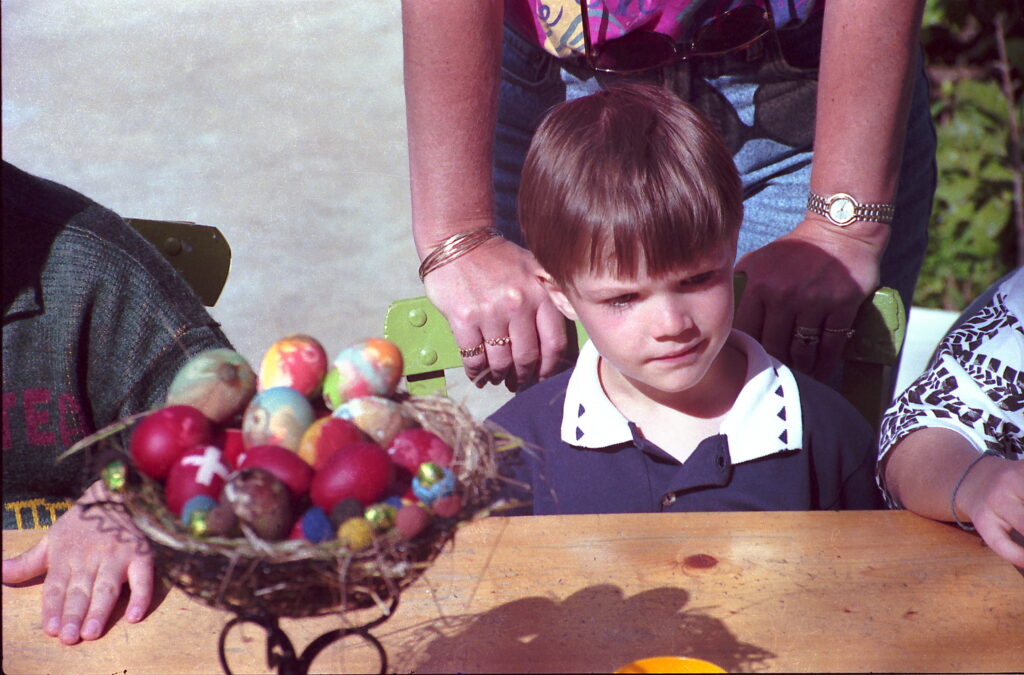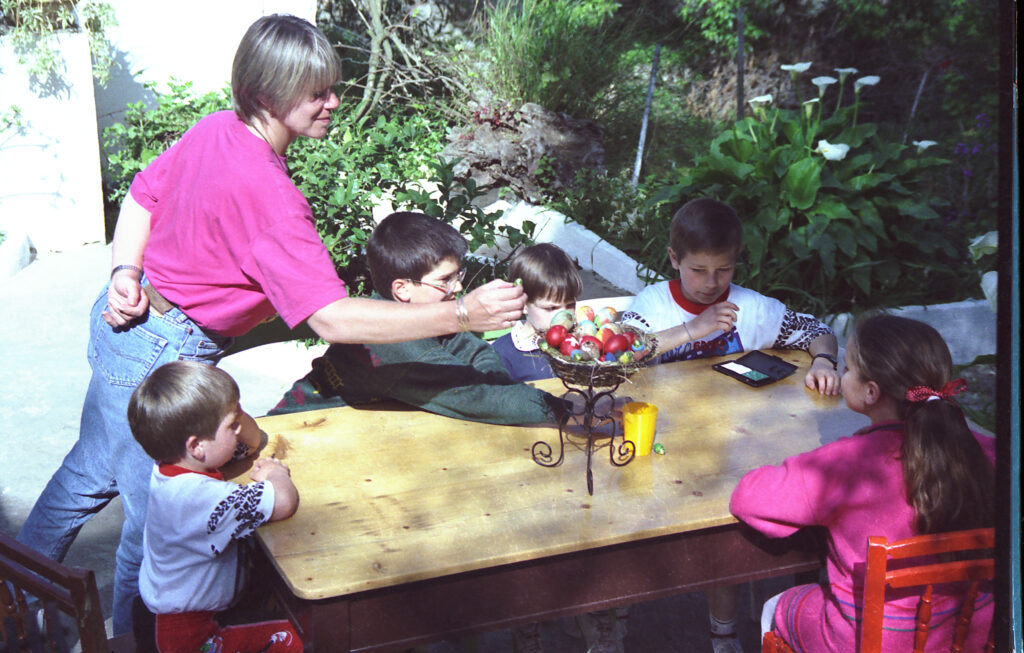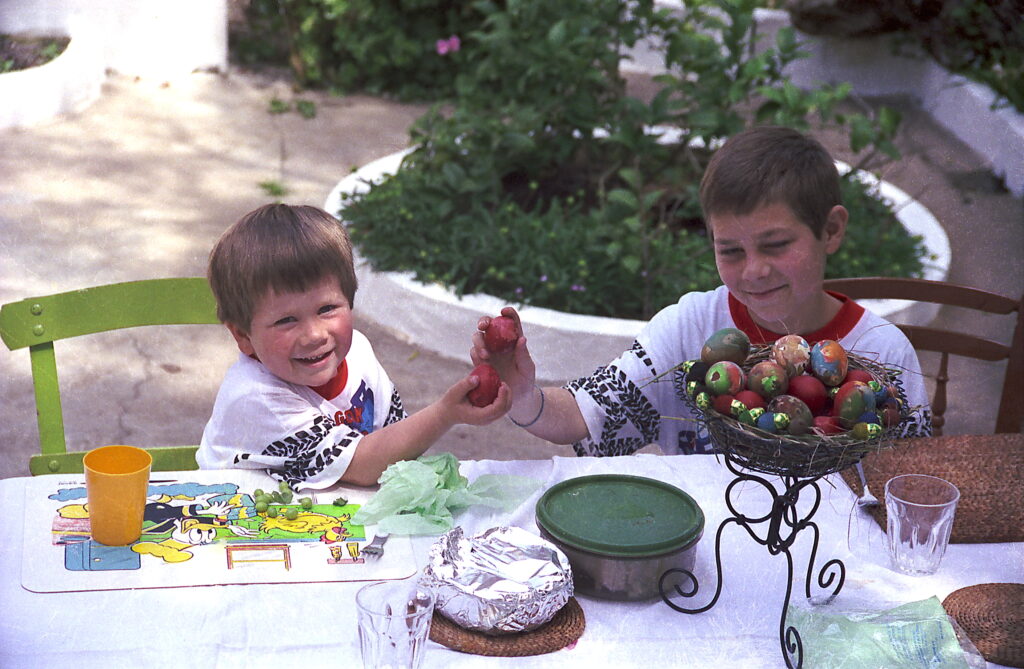(A glimpse into the traditional festivities of a Greek Orthodox Easter)
Over 90% of Greeks identify with the Greek Orthodox Christian faith. Their church has played a strong part in their history and religious traditions are important to them. One of the most celebrated events of the calendar is the Orthodox Easter and this year their Easter falls on 16th April.
Festivities begin about a month before Lent with Carnival Season (“Apokries”): celebrations of street parties, parades and masquarades – originally pagan rituals worshipping Dionysos, the God of wine, agriculture, fertility, dance and fun.

Clean Monday (“Cathara Deftera”) marks the end of Apokries and families mark the start of Lent, when the fasting begins, with picnics of seafood, taramasalata, halva (a corn starch sweet) and unleavened bread (“Lagana”), traditionally accompanied by kite flying.
Those observing the tradition of Lent will abstain from consuming meat, dairy products, alcohol and sugar.
On the eve of Easter Sunday village communities gather with lit candles and wait for the priest to declare that “Christ is Risen”. Church bells and fireworks then celebrate the hour and then “Magiritsa”, a soup made from lamb offal, is served.
Easter Sunday is the day of the greatest feast of all. Lambs are roasted on outdoor spits and the groaning Easter table welcomes family and friends for a day of indulgence.
On the table will be bowls or baskets of bright red eggs. The eggs are dyed red on Holy Thursday, a custom which goes back to the early Christians and symbolises the sacrificial blood of Christ.


The cracking of the red eggs has its own symbolism. The hard shell of the egg symbolizes the sealed tomb of Christ while the cracking means that the tomb has been broken and that Christ has been resurrected from the dead.
Egg cracking (“Tsougrisma”) is a bit like a game of conkers! Each player holds a red egg and one taps the end of their egg against the end of the other player’s egg. The goal is to crack the opponent’s egg without cracking yours. When one end is cracked, the winner uses the same end of their egg to try to crack the other undamaged end of the opponent’s egg. The player who successfully cracks the eggs of the other players is declared the winner and, it is said, will have good luck during the year.
Traditionally, when tapping the egg, the first player would say to his opponent “Christos anesti” (“Christ has risen!”) to which the second person responds “Alithos anesti!” (“He Truly Has”).

Watch out for the occasional cheat, who moves a thumb nail unobtrusively and quickly over their egg tip just as their opponent delivers a tap!
An understanding of simple physics helps: the pointiest egg should perform better.
Hold your egg in a grip as close to the tapping end as possible, so that it can only be hit at the curviest/pointiest spot on the top while the sides are supported.
Kalo Pascha,
David

